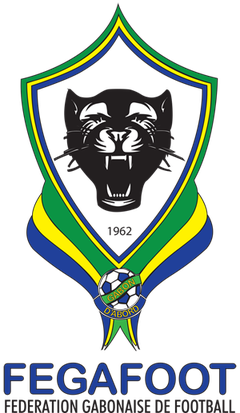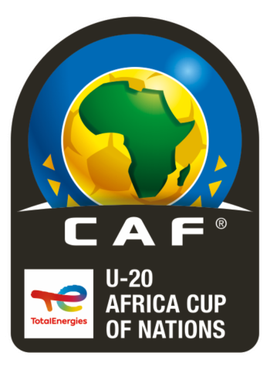
The Ivory Coast national football team represents Ivory Coast in men's international football. Nicknamed the Elephants, the team is managed by the Ivorian Football Federation (FIF). Until 2005, their greatest accomplishment was winning the 1992 African Cup of Nations against Ghana on penalties at the Stade Léopold Sédar Senghor in Dakar, Senegal. Their second success came in 2015, again defeating Ghana on penalties in Bata, Equatorial Guinea. The team represents both FIFA and Confederation of African Football (CAF).

The Libya national football team represents Libya in men's international association football and it is controlled by the Libyan Football Federation. The team has never qualified for FIFA World Cups in history but has qualified for three Africa Cup of Nations: 1982, 2006, and 2012. In 1982, the team was both the host and runner-up. In the Arab Cup, Libya finished second in 1964 and 2012, and third in 1966. The team is affiliated with both FIFA and Confederation of African Football (CAF).

The Gabon national football team represents Gabon in men's international football. The team's nickname is The Panthers and it is governed by the Gabonese Football Federation. They have never qualified for the FIFA World Cup, but have qualified eight times for the Africa Cup of Nations. The team represents both FIFA and Confederation of African Football (CAF).

The Mozambique national football team represents Mozambique in men's international football competitions and is controlled by the Mozambican Football Federation, the governing body for football in Mozambique. Mozambique have never qualified for a FIFA World Cup, but they have qualified for four Africa Cup of Nations in 1986, 1996, 1998 and most recently the 2010 Africa Cup of Nations in Angola, being eliminated in the first round in all four.

Otto Martin Pfister is a German football manager and one of Germany's most successful coaching exports, voted Africa's Manager of the Year in 1992. He is formerly the manager of the Afghanistan national team.
The Ivory Coast national rugby union team, nicknamed Les Éléphants, participates in the annual Africa Cup and are considered a third tier rugby team.
The men's qualification for football tournament at the 2008 Summer Olympics. FIFA restricted entry to players born after January 1, 1985.
The Ivorian national under-23 football team represents Ivory Coast in international under-23 tournaments.
The 1981 African Youth Championship was the 3rd edition of the biennial African qualification tournament for the FIFA World Youth Championship which was contested on a home-and-away two-legged basis.
The 2003 African Youth Championship was an association football tournament for under-20 players. It was held in Burkina Faso from January 4 until January 18. The top four teams qualified for the 2003 FIFA World Youth Championship.
The 1979 African Youth Championship was the second edition of the biennial qualification tournament for the FIFA World Youth Championship for African nations and the inaugural edition under the African Youth Championship title.

The African Nations Championship, known for sponsorship purposes as the TotalEnergies African Nations Championship and commonly abbreviated as CHAN, is a biennial African national association football tournament organized by the Confederation of African Football (CAF) since 2009 and first announced on 11 September 2007. The participating nations must consist of players playing in their national league competitions.

The 2005 African Youth Championship was an international football competition that took place between 15 and 29 January 2005. The tournament was hosted by Benin and also served as qualification for the 2005 FIFA World Youth Championship.
Ivory Coast national under-20 football team, also known as Côte d'Ivoire Under-20s or Ivory Coast U20(s), represents Ivory Coast in association football at an under-20 age level and is controlled by Ivorian Football Federation, the governing body for football in Ivory Coast.

The U-20 Africa Cup of Nations, known for short as the U-20 AFCON and for sponsorship purposes as TotalEnergies U-20 Africa Cup of Nations, previously known as the African Youth Championship and the African U-20 Championship, is the biennial international youth football tournament organized by CAF for its nations consisting of players under the age of 20. It serves as an African qualification tournament for the FIFA U-20 World Cup.
The 1983 African Youth Championship was the 4th edition of the biennial African qualification tournament for the FIFA World Youth Championship which was contested on a home and away two-legged basis.
The 1985 African Youth Championship was the 5th edition of the biennial African qualification tournament for the FIFA World Youth Championship which was contested on a home-and-away two-legged basis.
The 1987 African Youth Championship was the 6th edition of the biennial African qualification tournament for the FIFA World Youth Championship which was contested on a home-and-away two-legged basis.
The 1989 African Youth Championship was the 7th edition of the biennial African qualification tournament for the FIFA World Youth Championship which was contested on a home and away two-legged basis.
The African Youth Championship 1997 was held in Morocco. It also served as qualification for the 1997 FIFA World Youth Championship.
This page is based on this
Wikipedia article Text is available under the
CC BY-SA 4.0 license; additional terms may apply.
Images, videos and audio are available under their respective licenses.







